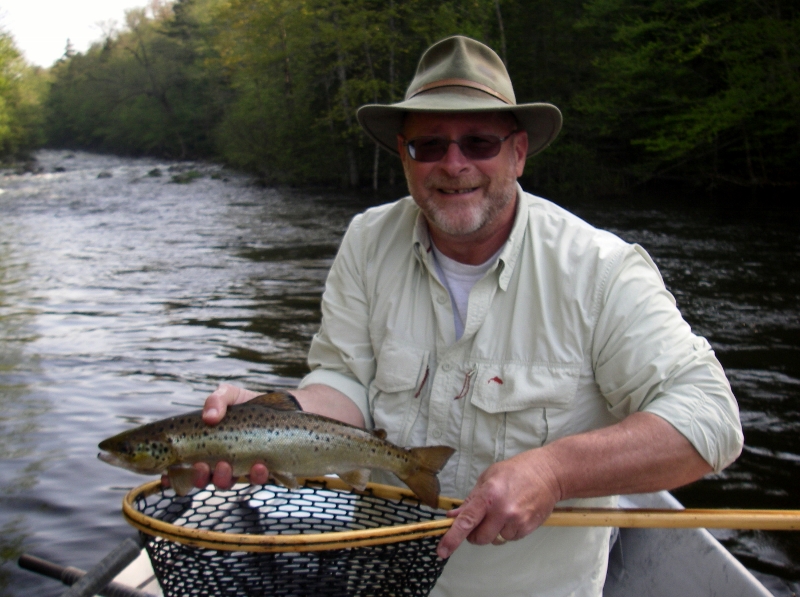Did you know that Pittsburg, which sits at the tippy-top of the state, has less than 900 residents but is New Hampshire’s largest town land-wise? It also shares an international border with Canada and is home to the Connecticut Lakes, the headwaters of the 410-mile long Connecticut River.
Anglers from around the globe head to Pittsburg for world-class springtime trout and salmon fishing. The season begins in late April, so get your gear ready to go! With a fishing season that extends from Spring through Fall, you’ll want to plan several trips to cast your line in the region’s pristine waters.
Spring is a special time to explore the town’s covered bridges, for this is a quiet season, lending itself well to standing in the middle of a bridge and contemplating the sense of history and mesmerizing flow of water beneath you.
In the early years of covered bridges, they were called “spooning places,” where lovers found some privacy in their courtships. One romantic 1930s-era author suggests that if you stand in a covered bridge at midnight, “you will hear a murmuring like little kissing winds …”
Pittsburg was once home to seven covered bridges, but now only three remain.
Just south of Pittsburg, on Bacon Road, the 88-foot Pittsburg-Clarksville bridge is the first bridge to cross the Connecticut River, on its 410-mile journey south to Long Island Sound. Town records indicate that money was raised to build this bridge in 1876. It was closed to traffic in 1981.
Six miles north on Route 3, on Hill Road, the 60-foot Happy Corner Bridge crosses Perry Stream. It was built sometime in the mid-1800s, taking its name, according to lore, from the store where “a group of jovial men … while away the hours with cards and fellowship.” It is one of the oldest covered bridges in northern New Hampshire.
River Road Bridge, located 7 miles north of the village on Route 3, on the road to Lake Francis State Park, measures 50 feet. It also spans Perry Stream and was built in 1858. Tip: The bridge is closed to traffic, but during the summer months, pedestrians can walk across and chat with volunteers who keep it clean and take care of minor repairs.
Keep your eyes peeled for the Historic Marker on Route 3 that tells the tale of the Republic of Indian Stream. As the story goes, the land between Indian Stream and Halls Stream was claimed by both Canada and the United States early in the 19th century. The issue was finally resolved and an l842 treaty recognized the land as US territory.
Pittsburg is moose country, so be prepared to be amazed if you see a couple of these magnificent animals grazing along the roadside. Have your camera or phone ready, but don’t get too close — these are wild animals after all with unpredictable behavior!
Pittsburg offers a variety of accommodations, including motels, inns, lodges, camps and campsites. Many include boating privileges, and fishing rod rentals are available. Click on the NH Grand website for suggestions (www.nhgrand.com).

